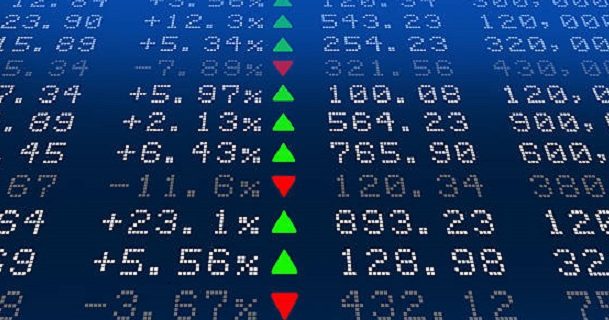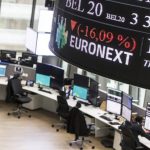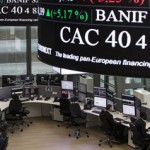Pan-European Stoxx 600 was down Monday morning; Auto stocks led the losses

European markets were lower Monday morning, following broad declines in Asia after China’s central bank cut its reserve requirements for banks.
The pan-European Stoxx 600 was down around 0.5 percent during early morning deals, with most sectors and major bourses in negative territory.
Auto stocks led the losses shortly after the opening bell, down around 1 percent amid reports European lawmakers could soon impose tougher-than-expected carbon dioxide emission caps. Earlier this month, EU environment ministers backed a target to slash carbon emissions from cars and vans by an ambitious 40 percent by 2030. In response, the European carmakers’ lobby has since warned such plans could threaten jobs in the industry. Volkswagen, Valeo and Renault were all down around 1 percent.
Meanwhile, Italy’s FTSE MIB index slipped almost 1.5 percent on Monday, as government bond yields hit fresh highs. The EU reiterated concerns over Italy’s budget plans over the weekend, while Rome insisted it would “not retreat.”
Looking at individual stocks, Norway’s Norsk Hydro surged to the top of the European benchmark after the aluminum firm got a key permit to help it restart its Alunorte refinery at half capacity. Shares of the Oslo-listed stock rose more than 5 percent on the news.
Trade tensions
Over in Asia, shares dipped broadly after the People’s Bank of China said it would cut the amount of cash that banks are required to hold as reserves. The move comes amid concerns about the economic impact of trade tensions and import tariffs between China and the U.S.
Chinese stocks in particular fell sharply after mainland markets opened for the first time in a week after the country celebrated Golden Week. Traders also digested purchasing managers’ index (PMI) data out of China Monday, which showed a fast-growing services sector but rising cost pressures and lower employment.
Investors will be keeping an eye on U.S. markets on Monday amid fears of rising interest rates. Comments by U.S. Federal Reserve Chair Jerome Powell last week about the U.S. central bank’s interest rate hiking path sent Treasury yields to multi-year highs. And key nonfarm payrolls data showed a worse-than-expected increase in jobs — but a fall in the unemployment rate to 3.7 percent, the lowest level in almost five decades. The economic data, alongside Powell’s comments, sent shares stateside lower Friday, with the S&P 500 posting its worst weekly performance since September 7.
On the political front, U.K. Prime Minister Theresa May got a boost Sunday after Japanese Prime Minister Shinzo Abe told the Financial Times that he would welcome Britain into the Trans-Pacific Partnership agreement “with open arms” after Brexit. And EU officials have become growingly optimistic about the possibility of a Brexit deal being reached, with European Commission President Jean-Claude Juncker saying an agreement could be struck by November.
However, surveys released by Deloitte and the British Chambers of Commerce on Monday showed that uncertainty is still weighing on British businesses, putting exports, recruitment and investments under pressure.
Source: CNBC



























